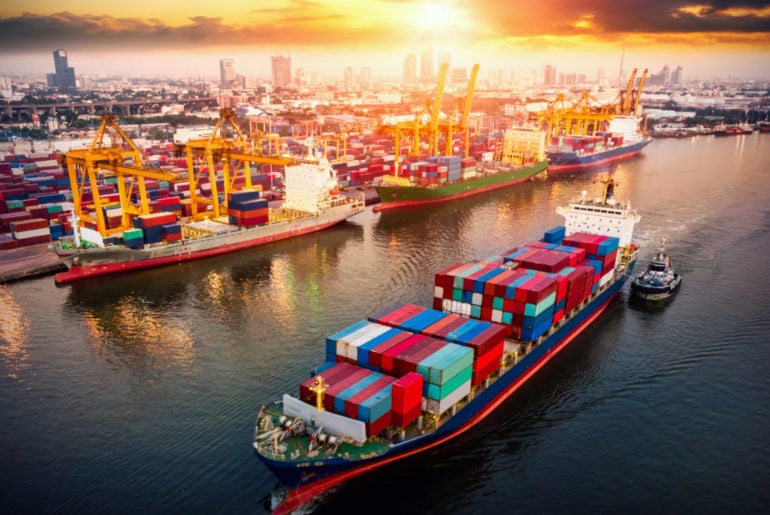Baker McKenzie’s Asia Pacific Employers’ Forum took place in Singapore on Thursday, 27 April 2023. You can access a number of related resources relating to employment issues and trends.
The Indonesian Competition Commission (Komisi Pengawas Persaingan Usaha (KPPU)) issued KPPU Regulation No. 3 of 2023 on Merger Filing Procedures, which replaced KPPU Regulation No. 3 of 2019 on the same matter. The New Merger Control Regulation became effective as of 31 March 2023, and it regulates administrative, procedural and substantive aspects of merger control. All filings from April 2023 onwards will be subject to the New Merger Control Regulation, including for transactions that had closed before 31 March 2023 but had not been filed. In addition, a new Governmental Regulation No. 20 of 2023 on Non-Tax Revenue Applicable to KPPU was also issued on 5 April 2023 and effective as of 5 May 2023 regulating that merger filings will be subject to a filing fee.
On Friday 31 March 2023, the Indonesian Competition Commission (Komisi Pengawas Persaingan Usaha or KPPU) enacted the KPPU Regulation No. 2 of 2023 on Procedure for Case Handling. With a newly issued KPPU Regulation No. 6 of 2023 officially repealing the 2019 regulation, the New Case Handling Regulation introduced several breakthroughs including integrating the use of technology, option to enter change of behavior commitment during investigations, and an expedited examination procedure.
The Chairman of the Indonesian Competition Commission (KPPU) has issued two new regulations. The first is on a new approach to defining relevant market, with the aim of addressing dual and multi-sided markets in the digital economy (KPPU Chairman Regulation No. 4 of 2022). The second is on criteria and requirements for paying administrative fines by instalments (KPPU Chairman Regulation No. 1 of 2023). Introducing a legal instrument through a KPPU Chairman Regulation – which arguably should not be binding on parties beyond KPPU itself – is unprecedented, and we may see these two KPPU Chairman regulations challenged in the future.
In December 2022, the Indonesian Minister of Finance issued a new regulation on imported goods for use, i.e., MOF Regulation No. 190/PMK.04/2022, which came into force on 13 January 2023. One of the notable highlights of MOF Regulation 190 is the new import declaration procedure for intangible goods (e.g., digital goods). This is a significant update because the previous regulations did not include provisions on this.
On Monday 27 March 2023, the Indonesian Competition Commission (Komisi Pengawas Persaingan Usaha, (KPPU)) sought input from stakeholders on its plan to overhaul the current merger control rules. KPPU is proposing to replace KPPU Regulation No. 3 of 2019 on Merger Filing Procedures. Key changes include the introduction of an electronic portal, narrowing the definition of assets for the calculation of asset thresholds to Indonesian assets only, and introducing three exits for transactions without competition concerns.
The European Union actively uses anti-dumping and anti-subsidy (or countervailing duty) investigations to protect the EU industry. Imports from Indonesia are a prime target for these investigations. Since 2003, imports from Indonesia were targeted in 15 anti-dumping and anti-subsidy investigations, and four of these investigations were initiated in the last three years.
Indonesia has been in the headlines with its 2022 G-20 presidency from December 2021 through November 2022. During its presidency, Indonesia was supportive of international community tax initiatives such as carbon tax policies and the global minimum tax. Domestically, the Indonesian government introduced tax reforms to update its tax systems and align its tax policies with international standards. In an article published in Tax Notes International, Baker McKenzie’s Ria Muhariastuti and Harizka Rizal discuss the Indonesian government’s efforts to reform its tax policies to meet international standards.
On 12 January 2023, the Government of Indonesia enacted Law No. 4/2023 on Development and Strengthening of the Financial Sector (Pengembangan dan Penguatan Sektor Keuangan). This law amended several laws, including capital markets law, which was regulated under Law No. 8/1995 on Capital Markets.
In this alert, we highlight some changes relating to post-IPO obligations (i.e., share ownership reporting, disclosure of material information and insider trading).
This is the fourth in a series of client alerts in relation to Law No. 4 of 2023 on the Development and Strengthening of the Financial Sector (“P2SK Law”), dated 12 January 2023. Aside from asserting the provisions that have been stipulated by the Financial Service Authority, the P2SK Law sets out several new provisions that open a new chapter in the financial conglomeration and consolidation. The P2SK Law now requires financial conglomerates to establish or appoint a financial holding company, a legal entity that is expected to control, consolidate and be responsible for all of the financial conglomerate’s activities. The P2SK Law also affirms OJK’s authority to give written orders to financial services companies to push for financial consolidation.



